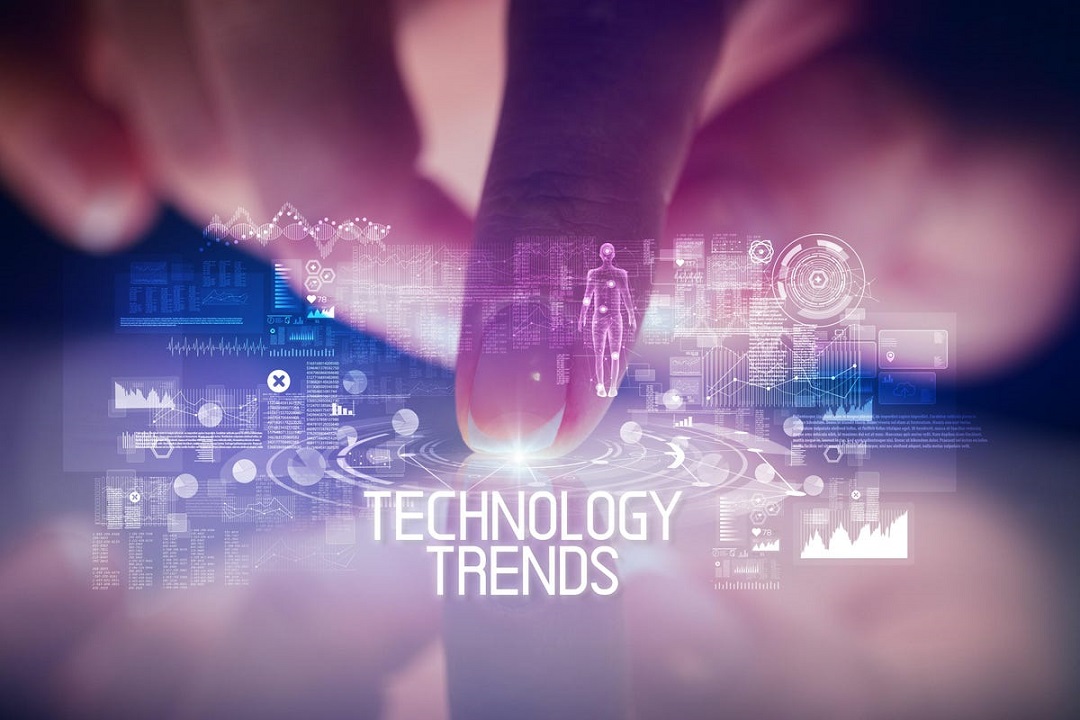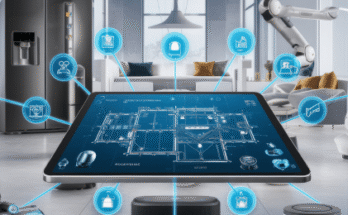Advancement in technology has always propelled the business sector. These advancements have helped companies grow and make their operations more accessible and efficient. Technology has enabled us to reduce our flaws and get closer to perfection.
Innovations like cloud computing, digital communication, digital security, and virtual assistance have already been helping businesses to propel and mark their growth gradually.
Workplaces are transforming to embrace novel designs and systems to improve efficiency and enhance productivity with the aid of these new techs. The better a business is updated with these advancements, the more is its standing chances in a highly competitive market.
Where cloud computing gives you an enormous storage place and high-end security of preserving the data, digital communication has ensured efficient collaboration in the workplace. Digital security is securing your website from hackers and other cyber-attacks.
Virtual assistance has already made a remarkable change in the industry by easing the search process. It creates a safe environment for both you and your users.
It is fascinating to think that even after all these new-age enhancements, tech in the business sector is pacing ahead even quicker. More optimization, more ease of operations, and better result-yielding are the primary focus of these emerging technology business tools.
Following is a list of five path-breaking tech trends that will impact the business sector in the coming years. If you are a business owner, start taking notes.
1. Automation and virtualization
We are already witnessing a very intricate involvement of AI these days everywhere. Chatbots auto calculators are some of the examples of AI that we are using in our daily life. Also, the pandemic has made us realize that there is not much need to be physically present to fulfill many requirements. Virtualization has also shown its efficiency in every field.
So, we will experience more virtualization and automation in the upcoming business model trends. Maximum work will be conducted with the help of artificial intelligence so that it may reduce the chances of mistakes. Also, the virtual model of working has benefited these businesses economically.
Less office resource utilization has made companies more profitable than running a regular office with employees. Virtualization has also helped us witness the top productivity quality from the employee’s end.
Hence, most businesses have already switched to this mode, and we are expecting many others to change and adapt virtualization in their work process. Applications like Slack, Teams, and Zoom will become crucial parts of business operations moving forward.
2. Hybrid infrastructure
Almost 70% of businesses have adopted the hybrid infrastructure work process. Hybrid cloud and Decentralized VRS blockchains are some examples of hybrid infrastructure that are coming into the mainstream pretty quickly.
It has also been estimated that Cloud Dev Jam, powered by Google itself, can be foreseen as the future of distributed infrastructure in the Next Gen cloud technology. In the next decade, we will be able to witness a lot more developments in such hybrid infrastructural cloud computing systems.
3. Digital assistants
Digital assistants have already picked up pace in the market with the growing usage of smart devices. Several software programs can perform rule-based work processes with people through the instructions given in a written or a speech form. Robotics-processed automation, chat box, and voice assistants are some of the representations of these technologies.
Voice assistants are perhaps the most commonly noticed virtual assistants around currently. Across different OS, there is a specific integrated voice assistant- Cortana for Microsoft, Siri for Apple, Google Assistant for Google- to help you navigate better through the device’s smart features.
Amazon’s Alexa and Samsung’s Bixby are brand-specific digital assistants that can be integrated with multiple smart devices in your home or office space to control every aspect of the space through voice commands.
4. Internet of Things
IoT, or the Internet of Things, is not a new phenomenon. However, their use in business operations is yet to become a trend, mostly due to the risk of errors.
IoT refers to electronic or sensor-based objects capable of identifying and communicating with each other with the help of Internet and clouds solution. They can exchange their data and information with this procedure.
Anything related to sensory identification is the Internet of things. Unlocking your phone through your fingerprints or opening your car, or opening your door, all these things that involve sensor readings are part of the Internet of Things.
With more research and modifications, IoT is expected to become even more efficient, precise, and versatile in its functions. So, businesses that are better prepared to integrate this tech slowly into their operations will get the upper hand in the coming years.
5. 3D printing
Printing maps, plans, and business ideas are common in marketing. But now, you can present a much clearer idea of what is there in your mind with the help of 3D printing. It gives them a realistic view of what you want to present and what’s your ideology regarding their project.
With 3-D printed plans. There are no illusions about demographics or graphics used to show specific data. Industries like interior designing architecture, escape room games, etc., are using 3D printing technology the most effective right now.
Conclusion
Apart from the trends discussed above, there are a few more worthy of note. RPA or Robotics Processed Automation, Edge Computing, Quantum Computing, and VR & AR are some of them. Even though the functionality of each of these technologies is in different areas, the main purpose here seems to be the same- minimization of manual labor in repetitive tasks to optimize human resources better.
A lot of people are skeptical over tech slowly automating business operations and allowing companies to rely on machines more. This is because they believe machines replacing manual laborers will shortly create a huge employment crisis.
But optimists are certain that automation and other technological advancements in the business sector will only allow companies to redirect resources towards more nuanced jobs and invest in upscaling their existing workforce.
At the end of the day, it is up to business owners to regulate through these changes to keep their organizations inclusive and optimized simultaneously.




